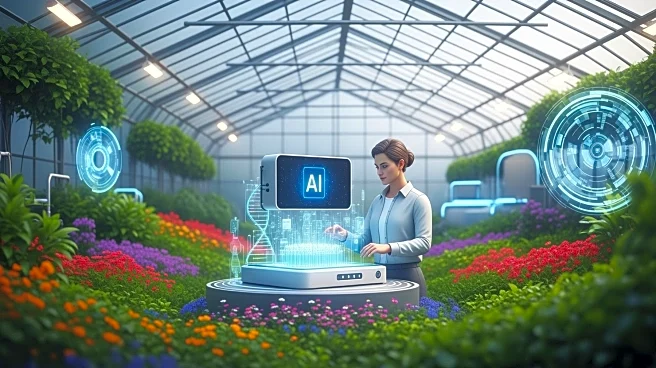What's Happening?
A Munich-based startup, NoMaze, is transforming plant breeding practices by introducing SmartPlot, an AI-driven tool designed to assist plant breeders in adapting to climate changes. The tool simulates future climate conditions, allowing breeders to make
informed decisions about crop selection. CEO Jean-Pascal Lutze highlighted the tool's ability to streamline the lengthy process of developing new crops, which typically takes five to ten years. The innovation aims to address declining crop yields caused by rising global temperatures and extreme weather events, enhancing agricultural productivity and food security.
Why It's Important?
The introduction of AI in agriculture, as demonstrated by NoMaze's SmartPlot, holds significant potential for improving efficiency and precision in farming. By enabling better monitoring and forecasting, AI can help farmers manage crops more effectively, potentially reducing the risk of crop failures and bolstering food security. However, the increased use of AI technology also raises concerns about energy consumption and carbon emissions, which could exacerbate climate change. Balancing technological advancement with environmental sustainability remains a critical challenge for the industry.
What's Next?
As NoMaze continues to develop and refine SmartPlot, the agriculture industry may see broader adoption of AI tools to combat climate-related challenges. Stakeholders, including farmers, researchers, and policymakers, will likely monitor the tool's impact on crop yields and environmental sustainability. The success of SmartPlot could encourage further investment in AI-driven solutions, prompting discussions on energy efficiency and carbon footprint reduction in technology deployment.
Beyond the Headlines
The use of AI in agriculture not only promises increased efficiency but also raises ethical considerations regarding data privacy and the potential displacement of traditional farming jobs. As AI tools become more prevalent, the industry must address these concerns to ensure equitable and sustainable growth.















